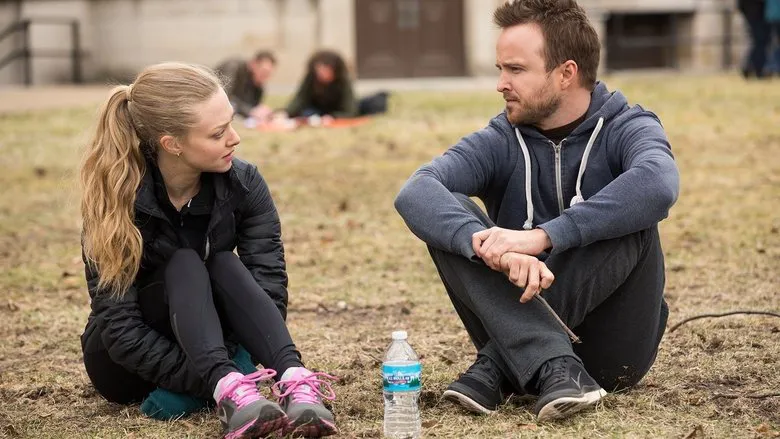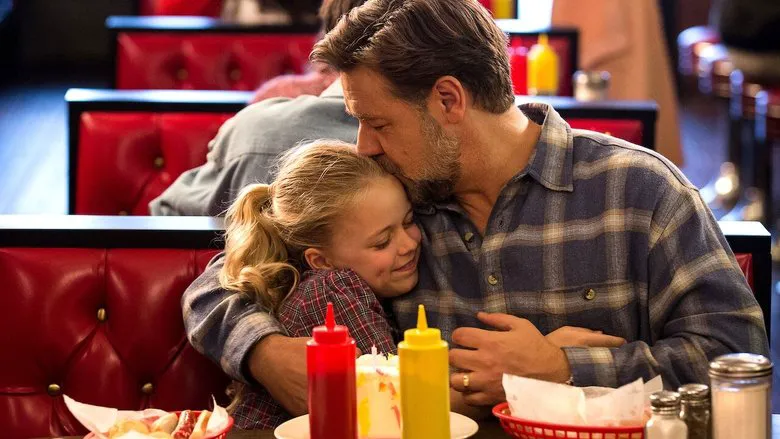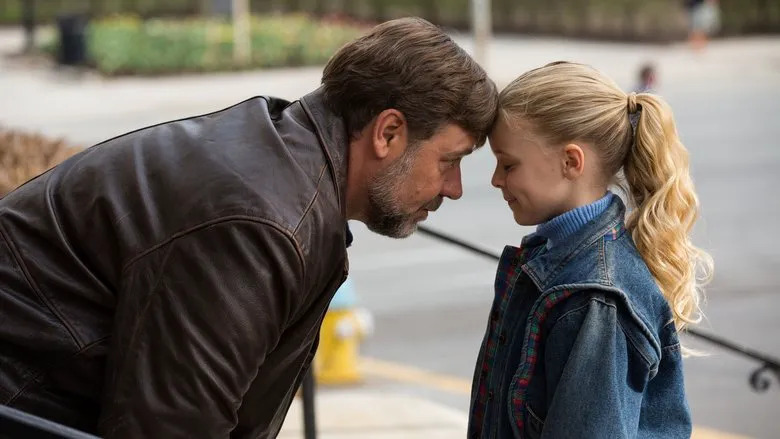Fathers and Daughters: A Missed Connection
Gabriele Muccino revisits the themes of fathers and children, but this time, the result falls far short of the emotional resonance he achieved a decade ago with “The Pursuit of Happyness.”
The film tells the story of Jake Davis, a promising writer whose life is shattered by a car accident that leaves him a widower. His severe injuries, leading to unpredictable seizures, initially prevent him from raising his daughter, Katie. After six months of hospital treatment, Jake takes on the responsibility of caring for Katie. However, fate continues to test them as the writer struggles with financial difficulties, unable to afford a prestigious school, maintain their home, or even buy gifts for his beloved child. Under immense pressure, Jake channels his experiences into writing his best novel, dedicated to his daughter. Twenty-five years later, Katie, now aspiring to be a psychologist, grapples with understanding her father’s legacy, the sacrifices he made for her future happiness, and the person she needs to become to maintain the love of her boyfriend, Cameron.
 .jpg “Still from "Fathers and Daughters"”)
.jpg “Still from "Fathers and Daughters"”)
The Perils of Star Power
Often, when discussing a film project, we acknowledge the unique magic of cinema – where the beauty and success of a film often surpass the sum of its creators’ talents and efforts. When creative individuals come together, they can achieve a kind of alchemy, transforming raw materials into something extraordinary. However, the opposite can also occur, where a collection of stars fails to ignite, instead trampling everything in their path, hindering each other’s potential. In such cases, neither a renowned director, a brilliant script, nor a collection of Academy Awards can salvage the project. “Fathers and Daughters” by Gabriele Muccino is a prime example of such a “film disaster,” where instead of a harmonious symphony, the orchestra plays out of tune.
 .jpg “Still from "Fathers and Daughters"”)
.jpg “Still from "Fathers and Daughters"”)
A Promising Start, A Disappointing Result
The genesis of “Fathers and Daughters” dates back to 2012 when Brad Desch’s script about a writer struggling with overwhelming challenges landed on the infamous “Black List” of unproduced screenplays. A year later, the project gained momentum when producers secured Gabriele Muccino, the Italian director of films like “The Pursuit of Happyness,” “Seven Pounds,” and “Playing for Keeps,” to helm the film during the Cannes Film Festival. Subsequently, it was announced that Russell Crowe, Amanda Seyfried, Diane Kruger, and Aaron Paul would take on the leading roles, with Octavia Spencer, Jane Fonda, and Bruce Greenwood appearing in supporting roles. On paper, it seemed like a dream project. However, instead of a profound and moving drama, viewers are met with a strained and superficial exploration of poorly developed characters, emotions, and events.
 .jpg “Still from "Fathers and Daughters"”)
.jpg “Still from "Fathers and Daughters"”)
Lost in Translation: Emotional Connection
The most significant flaw in “Fathers and Daughters” is its catastrophic inability or unwillingness to engage the audience in the experiences of the main characters. Jake’s struggles are easily understood: a single father with physical challenges, facing financial ruin, estranged from his family, and losing his former popularity. His daughter is his only anchor. Similarly, Katie’s trauma is evident – she has lost faith in the warmth of hearts, the sincerity of relationships, and the depth of feelings. However, Muccino fails to make these characters feel alive and relatable. Despite Crowe’s talent, there is no reason to empathize with his character, and no reason to feel compassion for Seyfried’s character – they remain cold, cardboard cutouts.
 .jpg “Still from "Fathers and Daughters"”)
.jpg “Still from "Fathers and Daughters"”)
A Script Lacking Soul
Perhaps the screenwriter bears some responsibility, as the script feels overly manipulative and simplistic, lacking the charm and heart that Muccino brought to “The Pursuit of Happyness.” At times, “Fathers and Daughters” descends into outright banality: Jake loses control at the most crucial moment, Katie bursts into tears at the sound of a song from her childhood, and the line “I just don’t know how to be loved” feels physically repulsive – it’s simply embarrassing.
Adding to the film’s woes are the even more shallow subplots involving Katie’s relationships with her student, Lucy, and her boyfriend, Cameron, as well as Jake’s conflict with his deceased wife’s family. The film becomes a cloying mess, lacking form and coherence. While the general idea is clear, the execution feels like a collection of ingredients that have not only been forgotten to be cooked but haven’t even been unpacked. One can only hope that “Fathers and Daughters” is a temporary lapse in judgment for its creators. Muccino, and especially Crowe and Seyfried, deserve to be seen more often, but in films that are warmer or at least more sincere.